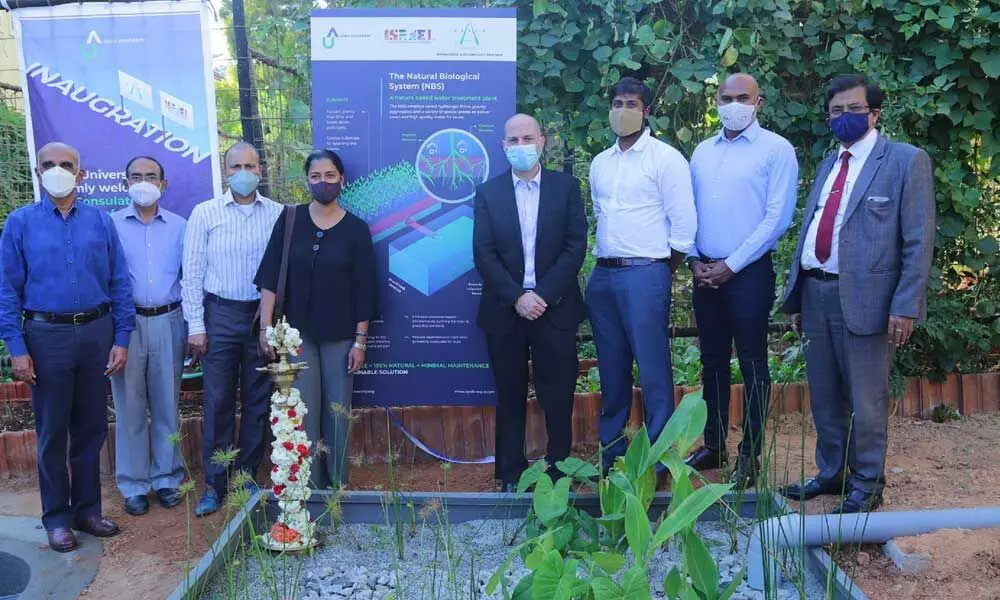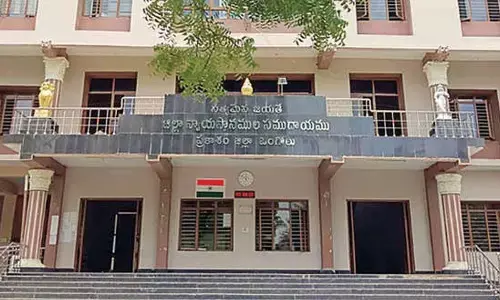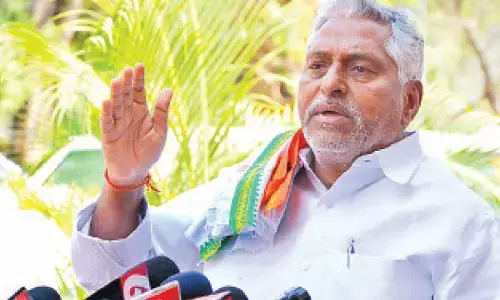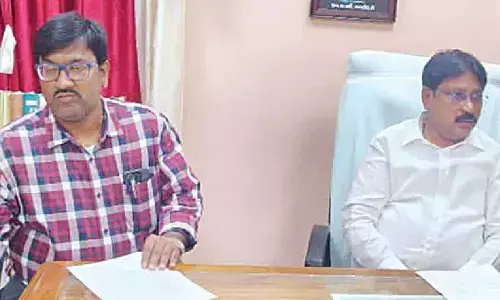Atria University unveils waste water management solution project

Atria University unveils waste water management solution project
India’s foremost university committed to redefining the paradigms of conventional education - Atria University, launched its first-ever wastewater management solutions project in association with the Consulate General of Israel to South India and Israel-based Ayala which specializes in sustainability solutions. This is the part of centre of excellence for water treatment.
Bengaluru: India's foremost university committed to redefining the paradigms of conventional education - Atria University, launched its first-ever wastewater management solutions project in association with the Consulate General of Israel to South India and Israel-based Ayala which specializes in sustainability solutions. This is the part of centre of excellence for water treatment.
The project was inaugurated by the Consul General of Israel to South India, Jonathan Zadka at the University campus in Anandnagar, near Hebbal, in Bengaluru. Also present at inauguration was representatives from Ayala and senior management from Atria University.
The key aim of the project is to collect wastewater generated from college hostels and treat it exclusively through natural resources for re-use. The naturally treated water is used for Atria's campus, canteen and garden. The project seeks to initiate and encourage sustainability on the campus.
"It gives me immense pleasure in working closely with Atria University, which is blazing a new trail with green initiatives. This is a highly laudable step since this goes a long way realizing the country's – and that of the whole world, indeed – climate goal. Small drops do make an ocean," said Jonathan Zadka, consul general of Israel to South India.
Interestingly, the project establishes a practical dimension to the three major courses offered in the university which are about sustainability: Mobility with focus on eco-friendly electric vehicles; Energy Science looking at the troika of wind energy, solar energy and thermal energy; and Life Science which tracks issues in environmental systems, sustainable ecosystems and food production systems under the overarching arc of sustainability.
The chief operating officer of Atria University, Kaushik Raju said, "We have been trying to introduce and practise carbon-neutral initiatives on our campus. Since we are already offering courses around the subjects of environment, ecology and sustainability, the project that we are launching tomorrow further affirms our faith in sustainable development. We should gift our next generation a better Earth as their home. This initiative is a step in that direction."
Sindhu Cherian, Ayala Natural Biological System, said, "We're happy to be associated with Atria University in amplifying the life mission of our company: 'Use natural and energy-free tools to restore balance in the environment.' It's highly commendable that Atria has launched a project that seeks to achieve this goal. This is something not many campuses in the country are doing on a large scale, even though environment studies are part of the syllabus from early on. Sustainable technology is the way forward, and we will make this journey together and achieve success."
Under the project, the natural biological system (NBS) employs varied hydrologic flows, gravity, aggregates and a variety of special plants to deliver clear and high quality of water for re-use. With this, the plant will facilitate on-site treatment of sewage and industrial effluents without requiring external energy for the functioning of the system. Thus, it's a carbon-neutral solution. The process involves a three-step approach involving chemical, physical and biological solutions.








